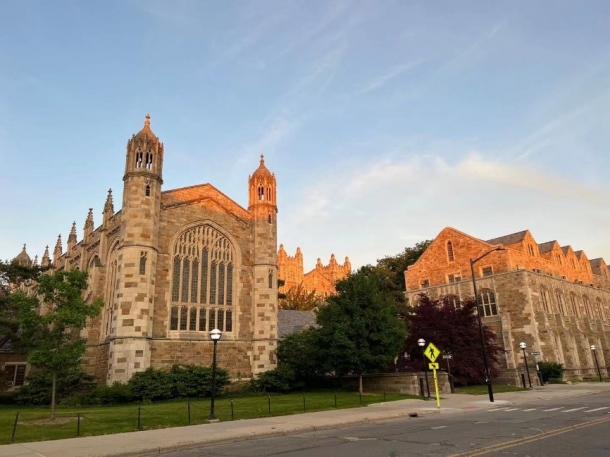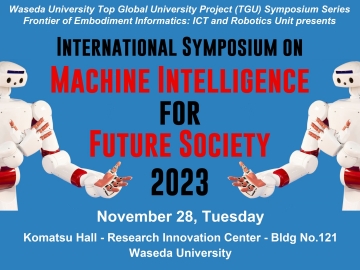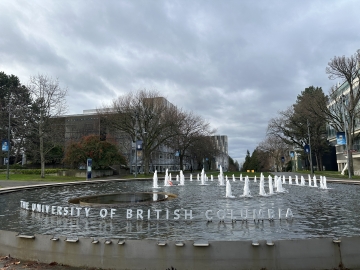ICPSR (Inter-university Consortium for Political and Social Research), which owns the world’s largest archive of research data on social sciences, holds an annual summer program in Quantitative Methods of Social Research at the University of Michigan, where it is headquartered. The ICPSR Summer Program, which has continued since the 1960s, was held in person in Ann Arbor, Michigan, and also via Zoom this year, with four weeks of intensive lectures on more than 40 courses.
The Center for Positive/Empirical Analysis of Political Economy subsidizes its program fees every year for graduate students participating in this program. This year, with the Unit’s support, two graduate students from the Graduate School of Political Science and the Graduate School of Economics dived into this four-week program at the University of Michigan. Below is one student’s report on his experience.
WANG, Yupeng
Affiliation: D3, Graduate School of Economics
Research interest: Food and Agriculture Economics
Destination: The University of Michigan (6/20/2022 – 7/15/2022)
The University of Michigan is one of the most famous universities in the world (QS 2022 rank: 23rd) and its social science in political economics department can be regarded as the ace of aces. The program I attended this time is called Inter-university Consortium for Political and Social Research (ICPSR) program, providing leadership and training in data access, curation, and methods of analysis for the social science research community. ICPSR maintains a data archive of more than 250,000 files of research in the social and behavioral sciences and hosts 21 specialized collections of data in education, aging, criminal justice, substance abuse, terrorism, and other fields. Also, it has a comprehensive curriculum of intensive courses in research design, statistics, data analysis, and social methodology. As for the purpose of attending the ICPSR program, one is to improve my empirical research skills by attending intensive courses, and another is to experience the local American campus life.
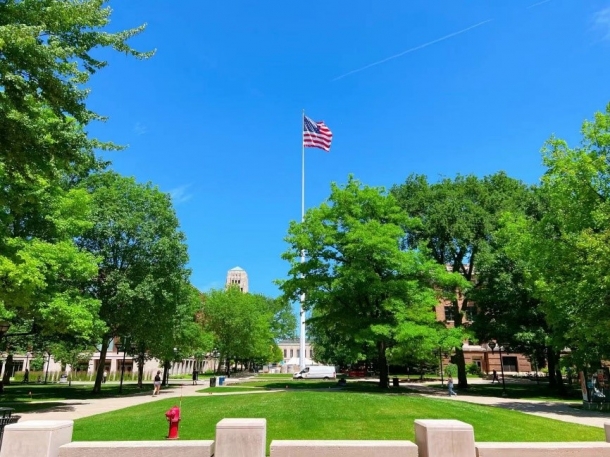
The Ann Arbor Campus, Univ. of Michigan
Studying abroad during the Covid-19 pandemic
Since the flight tickets and insurance were assigned by the university, what I had to do is mainly prepare certificates of Covid-19 vaccination and PCR test, reserve the local accommodation and update the visa for entering the U.S.
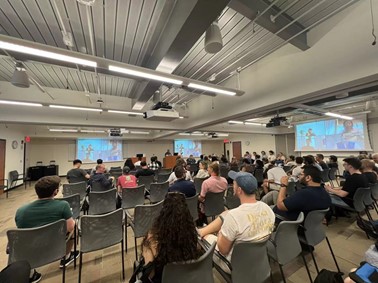
ICPSR program orientation
There is no request for wearing a mask in the U.S., and I noticed few people wear masks even in the border check, university lessons and other indoor events, which is quite different from Japan.
Many people regard it as a symbol of getting sick when wearing a mask, but I have never been forced to take off the mask except for individual identification.
Class overview
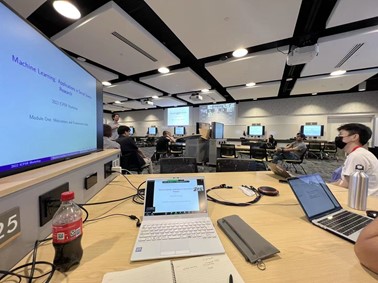
I registered for two courses during the program, Advanced Empirical Modeling of Social Science Theory and Machine Learning: Applications in Social Science Research. The courses were held basically in person, but there were real-time recordings in the classrooms so that students were able to attend online via zoom. Since the courses I registered for were on strategies of empirical analysis, there were few in-class discussions in the class, but students were very active in asking questions anytime during the class.
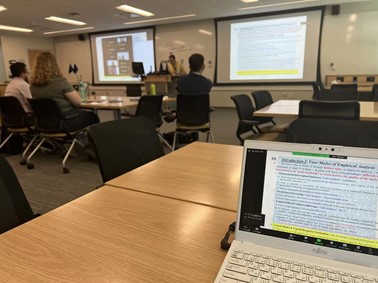
The course Advanced Empirical Modeling of Social Science Theory is by Robert J. Franzese, Professor & Associate Chair of Political Science, University of Michigan. This course could be regarded as the most advanced course in the whole curriculum. This is a course in the specification, estimation, interpretation, and presentation of empirical models appropriate for the causal heterogeneity and context-conditionality, the over-time and cross-unit dynamics and (inter-)dependence, and the ubiquitous endogeneity (causal simultaneity) that characterizes modern social-science theory. Every week, the course focuses on one topic, such as (1) parameter heterogeneity, interaction effects, and context conditionality; (2) the temporal, spatial, & spatiotemporal dynamics and interdependence; and (3) the ubiquitous joint endogeneity of modern theories of political and social science. There are also many reading materials, lab sessions, and assignments the participants need to finish. I had a difficult time interpreting the backgrounds and analysis results due to my insufficient political knowledge due to my major being economics, so students in similar backgrounds might need more additional reading about basic political studies to keep pace with the course. This course could be one of the most challenging and impressive ones in my whole student life.
Life in Ann Arbor
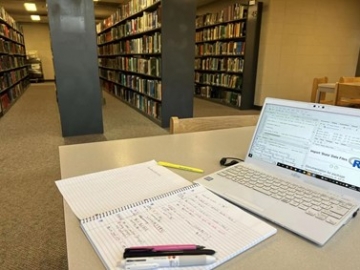
Campus library
The city of Ann Arbor, where the university of Michigan locates is a very beautiful and energetic city. Ann Arbor’s crime rate is far below the national average in the U.S. so I did not worry too much about the safety problem. As for the life in Ann Arbor. I visited the museum and parks during my free time. Since the courses need to do many labs and readings, I spent most of the time beyond lessons in the library. My daily life on the weekdays was like having breakfast in the coffee shop at 8 am and go to the library to do the reading and previews, having lessons from 1 pm to 5 pm in the classrooms, and then back to the library to do reviews and labs.
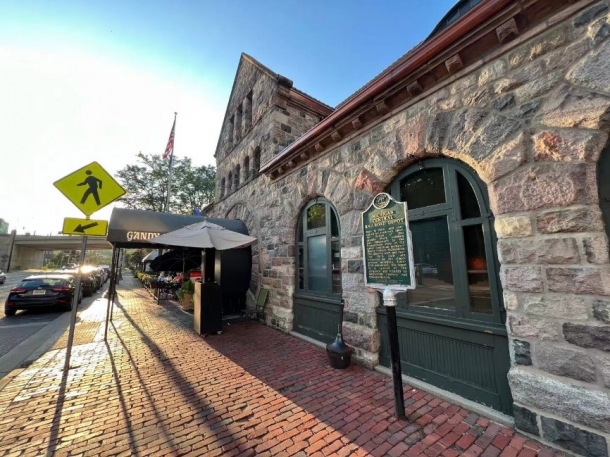
Ann Arbor neighborhoods
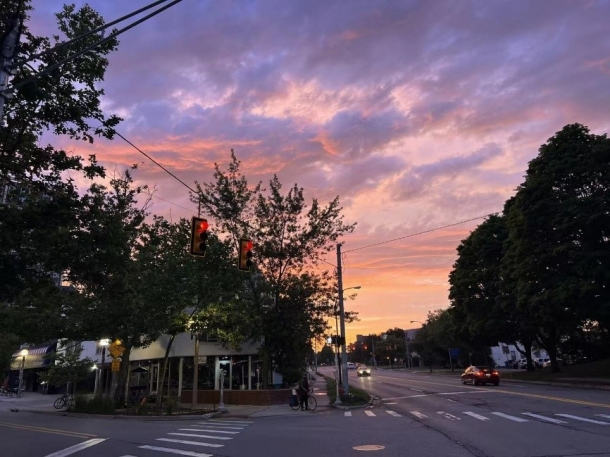
Future perspective
During the program, I gained so many useful empirical skills and realized the huge gap between me and other graduate student participants from all over the world. I will use what I learned to improve my current research and work harder to keep pace with the colleagues I met there.
